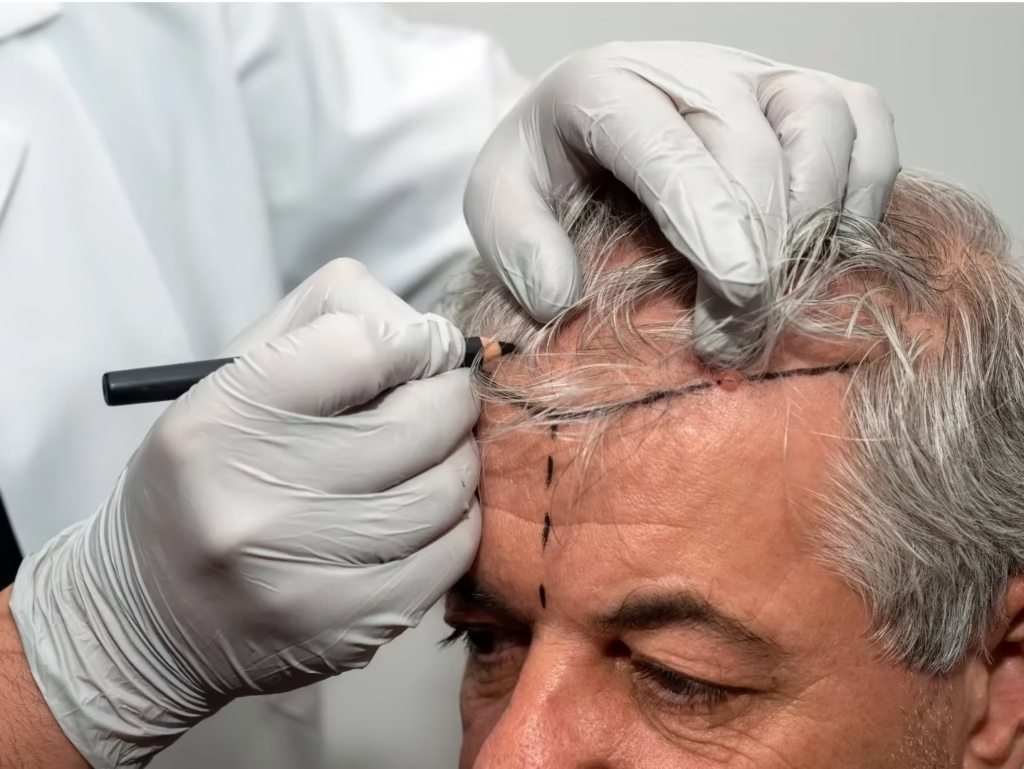As men age, hair loss often becomes more noticeable, leading many to explore solutions like hair restoration. A hair transplant can be an effective way to regain a fuller head of hair and boost self-confidence. But is there a “right” or ideal age for undergoing a hair transplant surgery?Today, we will look at what men should think about when getting a hair transplant later in life. We will talk about the importance of overall health. We will also discuss the role of the donor area. Finally, we will cover the need for realistic expectations.
Best Hair Transplant Age
Many people ask, “What age can you get a hair transplant?” There is no strict age limit for this hair transplant procedure. However, some factors should help you decide.For younger patients, especially those under the age of 25, hair loss might still be progressing. Doing a transplant at a young age may lead to mixed results later. This happens because the natural hair around it keeps thinning. That’s why we recommend waiting until hair loss has stabilized.For older men, the primary consideration isn’t age itself but overall health and the availability of donor hair. As long as the patient is healthy and has enough donor hair to support the transplant, age is not a limiting factor. In fact, men well into their 60s and 70s have achieved excellent results. See our Before and After a Hair Transplant Page to see the results of our actual patients.Is There a Good Age for Hair Transplant?
The right age for a hair transplant depends more on individual circumstances than on a specific number. Here are some factors to consider:- Stable Hair Loss: Waiting for hair loss to stabilize helps the transplanted hair blend well with your existing hair. This reduces the need for future touch-ups.
- Health of the Scalp and Hair Follicles: The quality of hair follicles in the donor area is very important. It helps achieve natural results.
- Overall Health: Older men in good health are often great candidates for hair transplant surgery. They usually follow recovery protocols more closely.
Factors That Determine Success for Older Men
Several factors influence the outcome of an older man’s hair transplant:- The availability and health of donor hair in the back or sides of the scalp are crucial. These areas are typically resistant to hair loss, making them ideal for transplantation.
- Scalp Health and Elasticity
- A healthy scalp with good elasticity makes it easier to extract and implant hair follicles effectively.
- Overall Health
- Conditions like diabetes or heart disease may not disqualify a patient but require careful management during hair transplant procedures. Consulting with a hair transplant specialist ensures an informed decision.
- Hair Restoration Goals
- People should focus on achieving density and coverage over perfect symmetry. The goal is a natural and age-appropriate look.
The Importance of Choosing the Right Hair Transplant Technique
The technique used plays a significant role in the success of the procedure. Older men often prefer the FUE hair transplant method for its precision and minimal scarring. This technique involves extracting individual hair follicles from the donor area and implanting them into the thinning areas.This process gives a natural result. It also keeps as much donor hair as possible for future touch-ups if needed.Another method, called Follicular Unit Transplantation (FUT), may work well for patients with a lot of baldness. This method allows for more hair grafts to be transplanted in one session.@trichogenics Hair transplant facts. #trichogenics #fue #hairtransplant #hairtransplantturkey #hairtransplantgreece #hairloss #hairfall #fue #fyp ♬ original sound – Trichogenics
What to Expect After Hair Transplant Surgery
Recovery Time
The recovery period for older men undergoing hair transplant surgery is generally straightforward. Mild swelling or redness is normal and subsides within a few days.Hair Growth Timeline
It’s important to note that transplanted hair doesn’t grow immediately. New healthy hair typically begins to appear within three to six months, with full results visible after a year.@trichogenics A big improvement in only 6 months! #hairtransplant #hairtransplantgreece #hairtransplantturkey #hairlosssolutions #hairloss #hairfall #finasteride #hairlossshampoo #minoxidilresult #trichogenics ♬ original sound – Trichogenics



